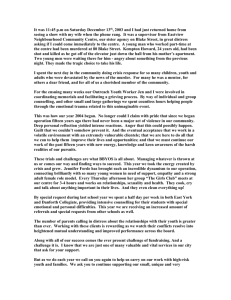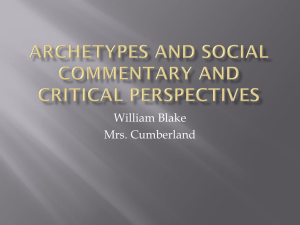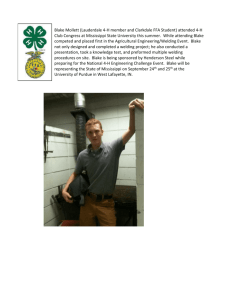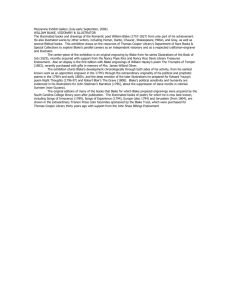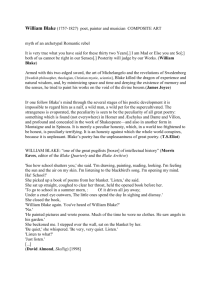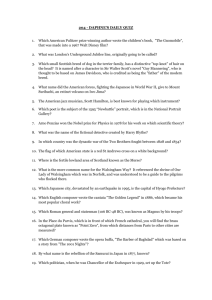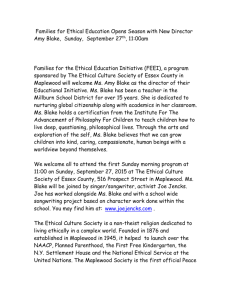Heritage of Western Civilization and Culture
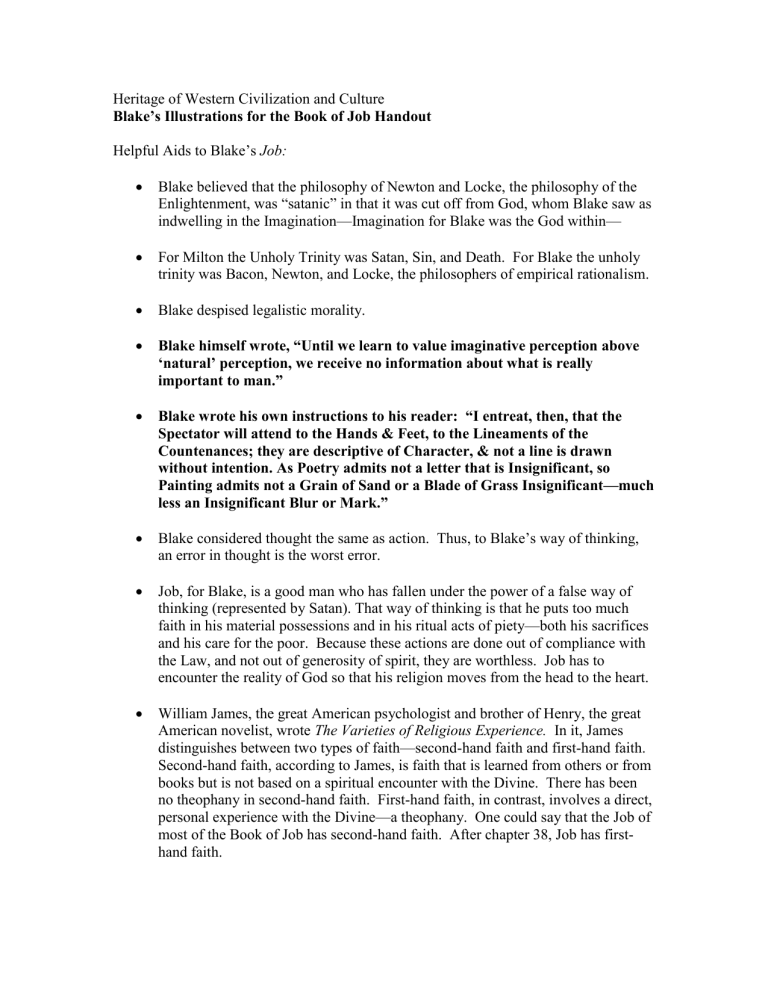
Heritage of Western Civilization and Culture
Blake’s Illustrations for the Book of Job Handout
Helpful Aids to Blake’s
Job:
Blake believed that the philosophy of Newton and Locke, the philosophy of the
Enlightenment, was “satanic” in that it was cut off from God, whom Blake saw as indwelling in the Imagination—Imagination for Blake was the God within—
For Milton the Unholy Trinity was Satan, Sin, and Death. For Blake the unholy trinity was Bacon, Newton, and Locke, the philosophers of empirical rationalism.
Blake despised legalistic morality.
Blake himself wrote, “Until we learn to value imaginative perception above
‘natural’ perception, we receive no information about what is really important to man.”
Blake wrote his own instructions to his reader: “I entreat, then, that the
Spectator will attend to the Hands & Feet, to the Lineaments of the
Countenances; they are descriptive of Character, & not a line is drawn without intention. As Poetry admits not a letter that is Insignificant, so
Painting admits not a Grain of Sand or a Blade of Grass Insignificant—much less an Insignificant Blur or Mark.”
Blake considered thought the same as action. Thus, to Blake’s way of thinking, an error in thought is the worst error.
Job, for Blake, is a good man who has fallen under the power of a false way of thinking (represented by Satan). That way of thinking is that he puts too much faith in his material possessions and in his ritual acts of piety—both his sacrifices and his care for the poor. Because these actions are done out of compliance with the Law, and not out of generosity of spirit, they are worthless. Job has to encounter the reality of God so that his religion moves from the head to the heart.
William James, the great American psychologist and brother of Henry, the great
American novelist, wrote The Varieties of Religious Experience. In it, James distinguishes between two types of faith—second-hand faith and first-hand faith.
Second-hand faith, according to James, is faith that is learned from others or from books but is not based on a spiritual encounter with the Divine. There has been no theophany in second-hand faith. First-hand faith, in contrast, involves a direct, personal experience with the Divine—a theophany. One could say that the Job of most of the Book of Job has second-hand faith. After chapter 38, Job has firsthand faith.
